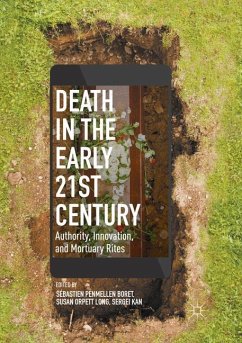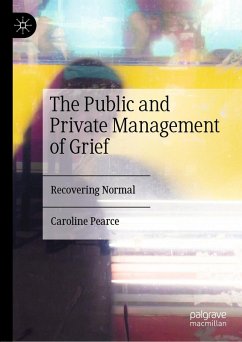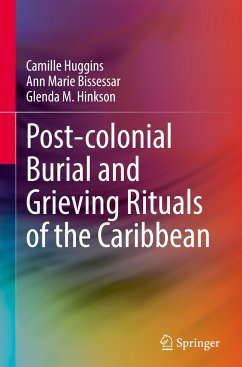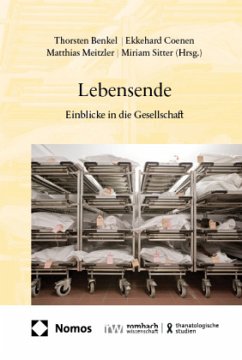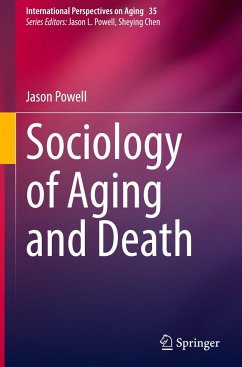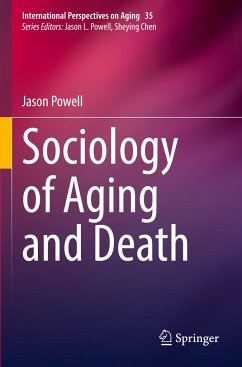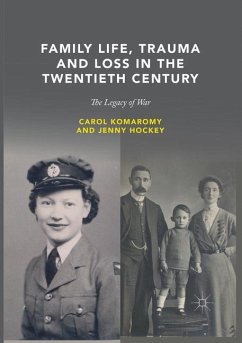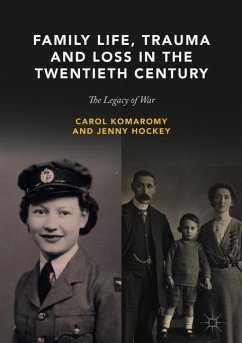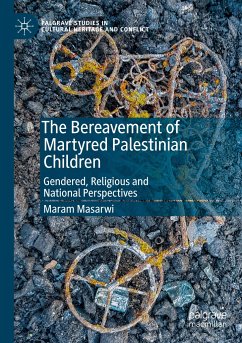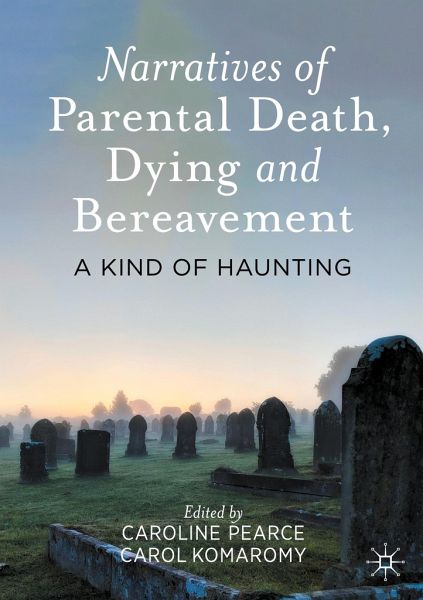
Narratives of Parental Death, Dying and Bereavement
A Kind of Haunting
Herausgegeben: Pearce, Caroline; Komaromy, Carol

PAYBACK Punkte
0 °P sammeln!
This collection shows what happens when facing the inevitable and sometimes expected death of a parent, and how such an ordinary part of life as parental death might connect with the children left behind. In many ways, individual deaths are extraordinary and leave a unique legacy - a kind of haunting.The authors' accounts seek to make sense of death through witnessing its enactment and recording its detail. All the authors are experienced researchers in the field of death studies, and their collective expertise encompasses ethnography, psychology, sociology and anthropology. The individual des...
This collection shows what happens when facing the inevitable and sometimes expected death of a parent, and how such an ordinary part of life as parental death might connect with the children left behind. In many ways, individual deaths are extraordinary and leave a unique legacy - a kind of haunting.
The authors' accounts seek to make sense of death through witnessing its enactment and recording its detail. All the authors are experienced researchers in the field of death studies, and their collective expertise encompasses ethnography, psychology, sociology and anthropology. The individual descriptions of death and grief capture the everyday practicalities of managing death and dying, including, for example, the difficulties of caring responsibilities and the realities of dealing with strained family relationships. These accounts show the raw detail of death; they are deeply personal observations framed within critical theories.
As established scholars and practitioners that have researched and worked in end-of-life and bereavement care, the authors in this anthology offer a unique perspective on how identity is shaped by a close bereavement. The book employs a strong editorial narrative that blends memoir with theoretical engagement, and will be of interest to death studies scholars, as well as practitioners involved in end-of-life care and bereavement care and anyone who has experienced the death of a parent.
The authors' accounts seek to make sense of death through witnessing its enactment and recording its detail. All the authors are experienced researchers in the field of death studies, and their collective expertise encompasses ethnography, psychology, sociology and anthropology. The individual descriptions of death and grief capture the everyday practicalities of managing death and dying, including, for example, the difficulties of caring responsibilities and the realities of dealing with strained family relationships. These accounts show the raw detail of death; they are deeply personal observations framed within critical theories.
As established scholars and practitioners that have researched and worked in end-of-life and bereavement care, the authors in this anthology offer a unique perspective on how identity is shaped by a close bereavement. The book employs a strong editorial narrative that blends memoir with theoretical engagement, and will be of interest to death studies scholars, as well as practitioners involved in end-of-life care and bereavement care and anyone who has experienced the death of a parent.





